
Pormezz / shutterstock.com
Bad things happen to good rheumatologists—and to their patients—and can have profound personal and professional consequences for the doctor. Sometimes recommended treatments can have predictable, but devastating, side effects. Even if the rheumatologist does everything right according to evidence-based best practice, patients can still have bad outcomes, even die—with resulting feelings of sadness, anger, guilt and grief for the doctor. Nor are rheumatologists immune to medical errors, which are rampant in the healthcare system.
In a session titled Death and Devastation: The Effect on Care Providers, presented at the 2017 ACR/ARHP Annual Meeting in San Diego, psychologist Marian R. Stuart, PhD, of Rutgers-Robert Wood Johnson Medical School in New Jersey, led participants through an interactive exploration of grief, guilt and forgiveness. Dr. Stuart is a clinical psychologist working in primary care and family medicine, and coauthor of The Fifteen Minute Hour, a book written to help primary care physicians address patients’ psychosocial concerns by incorporating therapeutic talk into routine practice.1
“My focus has been on trying to get doctors to process their feelings after a patient has died,” Dr. Stuart tells The Rheumatologist. “Younger doctors are willing, but older doctors are more resistant. It sometimes feels to them like opening a can of worms. But when I get their attention, such as at the ACR session, the response is amazing. Processing what happened is the way to get people in touch with their feelings and deal with them.
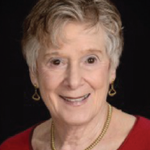
Dr. Stuart
“My whole emphasis is on giving doctors the tools to explore what happened, process it and then give themselves compassion to achieve self-forgiveness,” Dr. Stuart continues. “When doctors are able to process their own feelings, they can have more sense of connection with their patients and their experience—without getting burned out or sucked in. Instead, they can have meaningful interactions with patients that can be rewarding professionally. And that’s how you achieve a more satisfying career.”
These are not simple issues, and doctors don’t talk about them enough, says Leonard Sigal, MD, FACP, FACR, a rheumatologist and founder of Gateway Immunosciences LLC, in Stockbridge, Mass. He moderated Dr. Stuart’s ACR workshop. “But they need to be spoken about. Otherwise, you can walk through life carrying a heavy burden. Look at the diseases we treat in rheumatology, and the potential bad outcomes. Yes, research is being done, and treatments are getting better. But it doesn’t always work out the way we’d hope,” he says.
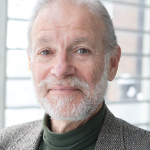
Dr. Sigal
“First, we all make mistakes—even the best clinicians. And even if you make no mistakes whatsoever, bad things happen. When you make mistakes, you need to learn from them so they don’t happen again. Everything you do from then on can honor the patient with whom you made your mistake. The changes you make in your practice in response are a tribute to that patient,” Dr. Sigal says. He agrees that physicians who make medical mistakes need to be able to forgive themselves, and he plans to write a journal article about how they can do that.
The cost of doctors not forgiving themselves is a higher risk for burnout, which can lead to more medical errors, higher costs of healthcare and professionals having to leave the field, Dr. Stuart says. “There’s definitely a connection between burnout and lack of self-forgiveness. Burnout, in a sense, is caused by caring too much. Then, when things don’t go well, you give up to protect yourself. You turn off your emotions, and the result is emotional exhaustion, depersonalization and compassion fatigue.”
A recent meta-analysis of 82 studies by Michelle Salyers, et al., confirms that burnout is associated with quality and safety issues in healthcare.2
Not Just Losing a Patient
“Many rheumatology patients suffer from chronic diseases. We may treat them for 10 or 20 years and really get to know them as human beings,” notes Afton Hassett, PsyD, associate research scientist and clinical psychologist at the University of Michigan Medical School and past president of the ARHP. “When a long-term patient passes away, you’re not just losing a patient, you’re experiencing a real loss.” Doctors are human beings, and accumulated levels of stress from these losses can leave them more vulnerable to negative emotional reactions.
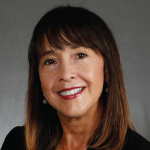
Dr. Hassett
Too often, Dr. Hassett says, rheumatologists fail to take the kinds of advice they give to their patients about taking time off when needed, practicing meditation, getting enough exercise and sleep. “And they’re not willing to reach out to other professionals to talk about the difficult things that have happened. If you’re not in a good place personally, with sufficient attention to self-care and work-life balance, it’s harder to bounce back when something bad happens.”
Doctors need to be able to process what happened, to make sense of it, to find a moral to the story, she says. “If you can ‘get’ and accept what happened, it’s easier to forgive yourself. But for that, you need to talk to other people, friends and colleagues who understand what you’re going through, with whom you can let your guard down. It’s practically a necessity if you want a sustainable medical career for the long term.”
Dr. Hassett notes a growing interest in creating physician well-being programs in medical schools and institutions. For example, a Patient Death Debriefing Session developed at Memorial Sloan Kettering Cancer Center in New York City, described in the Journal of Graduate Medical Education, offers a structured yet practical way to address residents’ emotional reactions following the death of a patient.3 Hospitals and other institutions are also taking steps aimed at promoting personal resilience and work-life balance, such as revising work hours, enhancing physical environments and establishing a positive culture.
The Problem with Perfectionism
Gail Gazelle, MD, FACP, FAAHPM, an executive coach who helps physicians learn to avoid burnout, notes that doctors’ orientation toward perfectionism, learned early in their medical training, can exact a heavy toll in their lives. “We know it’s unattainable, we’ll always come up short, because that’s part of being human. A harsh, self-critical approach is what gets modeled for us in physician training. But that standard makes it harder to function with adverse events or error.”
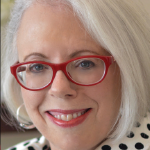
Dr. Gazelle
With growing emphasis on productivity and the administrative demands of their jobs, physicians only have so much emotional reserve, she says. “Physicians who don’t want to admit their human fallibility are even more isolated. They can feel like imposters, leaving them more vulnerable to harsh self-judgment. Rheumatology, with its high levels of chronic pain, is particularly challenging. We’re not always able to help patients, even at the top of our game. We become fearful of our own emotions and then, when they arise, we get scared and push them away. You can expend a lot of energy resisting your emotions, rather than just being with them. But really, emotions are part of life,” Dr. Gazelle says.
It’s not hard for doctors to learn to take their own emotional temperatures, using techniques of mindfulness meditation, and thereby become more present with their emotions without having them escalate, she says. “When I work with clients, I help them unpack their emotions. One of the things we’ve learned is that when we focus on our strengths and accomplishments, and set a clear intention to acknowledge what’s going well today, we are better able to deal with whatever comes up.”
Dr. Gazelle is board certified in the specialty of hospice and palliative medicine (HPM), in which it is expected that many patients will decline in health and eventually die. But the clinician’s goal is to relieve suffering, regardless of the ultimate outcome. Dr. Stuart thinks HPM practitioners may have something to teach rheumatologists about how to process their feelings of sadness and loss before moving on to the next seriously ill patient.
“Without a doubt, seeing our patients get worse and addressing their disappointment are serious stressors, and learning resilience and communication skills can help,” says Joseph Rotella, MD, chief medical officer of the American Academy of Hospice and Palliative Medicine.
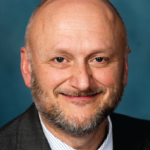
Dr. Rotella
Dr. Rotella suggests a couple of additional resources that rheumatologists may find helpful. One is the National Academy of Medicine’s Action Collaborative on Clinician Well-Being and Resilience. Another is VitalTalk, a National Institutes of Health-funded training curriculum and educational resource designed to help doctors and other professionals learn better communication skills, disclose serious news to patients, address the patient’s goals of care, establish better rapport, and track and respond to emotions that come up.
“HPM doctors face death, suffering and uncertainty all the time and have to learn to be okay around uncomfortable feelings,” Dr. Rotella says. “But we are not necessarily any more immune than other specialties to burnout, guilt and regret when things don’t go as well as we had hoped.”
Larry Beresford is a freelance medical journalist in Oakland, Calif.
References
- Stuart MR, Lieberman, JA. The Fifteen Minute Hour: Therapeutic Talk in Primary Care, fifth edition. Boca Raton, Fla.: The CRC Press, 2015.
- Salyers M, Bonfils KA, Luther L, et al. The relationship between professional burnout and quality and safety in healthcare: A meta-analysis. J Gen Intern Med. 2017 Apr;32(4):475–482.
- Eng J, Schulman E, Jhanwar SM, Shah MK. Patient death debriefing sessions to support residents’ emotional reactions to patient deaths. J Grad Med Educ. 2015 Sep;7(3): 430–436.


